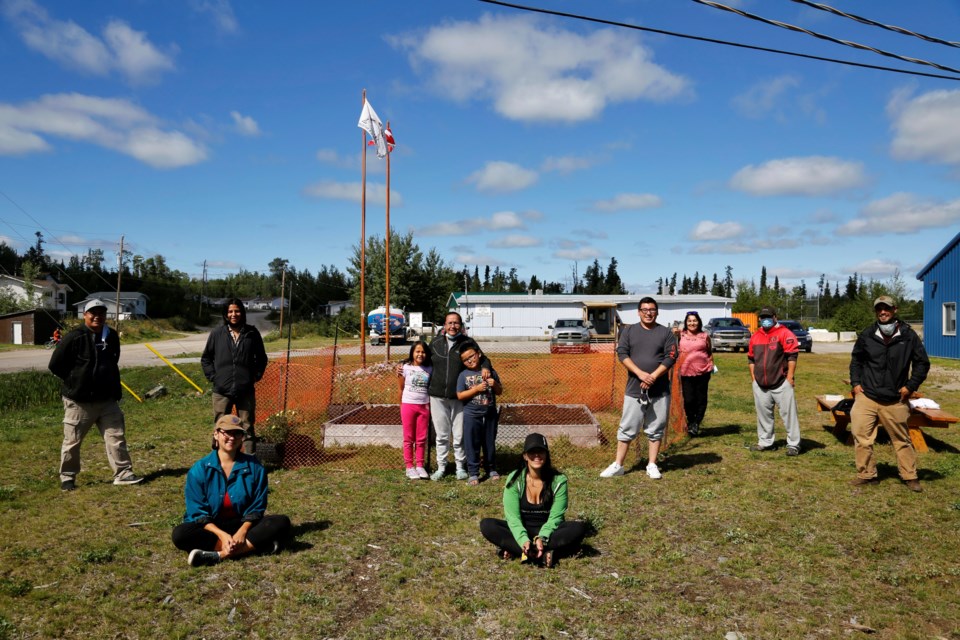Last Thursday the Indigenous Food Circle hosted a live event on Zoom to announce and discuss recent projects assisted by their partnership with the Thunder Bay District Health Unit.
Working with 14 First Nation communities, including Fort William, Bjinjitiwaabik Zaaging Anishinaabek and Red Rock Indian Band, this collaborative project began in November 2017 and has since flourished and grown to benefit these First Nations.
As a collaborative, participatory action-based project Understanding our Food Systems works to expand food sovereignty within these communities. This is done through the support of the Indigenous Food Circle and Thunder Bay District Health Unit.
Assisting long term
Shelby Gagnon, project co-ordinator, says it is a stepping-stone to assist communities without colonialized boxes to check.
“Over the past three years we have built deep connections, relationships, listened and learned from our partners, and supported life changing projects actionized by employees and community members. This has been nurturing work and we’re excited to share it.” Gagnon said during the live event this past Wednesday.
Gagnon and Jessica Mclaughlin have witnessed the interconnectedness they see within the First Nation communities and themselves.
“One main outcome and success story of the understanding our food systems project are the community food sovereignty visions,” Gagnon says.
Gagnon has only been in this project for a year but within that short time frame she’s already learned so much.
“It opened up my eyes to see the land and food in a different way and we need to learn how to be more sustainable and secure. It’s reclamation and self-determination and self-reliance so we’re not as dependent on these pots of money.”
Mclaughlin agrees and notes the systemic barriers and bureaucracy Indigenous peoples have to jump through to gain access to money needed to supply food sovereignty within their community.
Smaller projects a stepping-stone for the big picture
The food relationships the Indigenous Food Circle are promoting center around the lakes: Anishinaabewi-gichigami, Lake Superior, and Animbiigoo-zaaga'igan, Lake Nipigon with educating and engagement with the land by learning about harvesting, hunting and trapping.
Projects have ranged from gathering and harvesting workshops that get hands in the dirt, preserving and canning workshops, building greenhouses for health centres, and workshops such as blueberry preserving and “even that itself is building those relationships while learning a process,” comments Gagnon.
These small acts provide support for communities on a grander scale.
They allocate $2,000 to $6,000 for each community to begin or support their planning and envisioning.
“This has proven to be a source of motivation and empowerment supporting a small part of the planning project that financially leads to interest, commitment and passion. Each community determines what they want to do and we support it 100 per cent,” Gagnon said on Wednesday.
Traditional support
Through this collaboration the Indigenous Food Circle have worked with four elders: Gene Nowegegick, Gull Bay First Nation (KZA); Marlene Tsun, Alderville First Nation; Marcel Bananish, Long Lake 58 First Nation; Gerry Martin, Mattagami First Nation.
Through the understanding of how the land grows and the bounty it provides, this project is helping Indigenous peoples and families with proper access to food that is culturally relevant, and the chance to decide for themselves what will benefit their community in regard to food sovereignty.
“Communities determine what they want, and we support that,” says Mclaughlin.
They’re stepping away from the colonial approach to finding and allowing communities to decide what’s best for them without having to check the boxes.
Assisting during changing times
The money chase is what’s impactful on Indigenous health and wellness and Maclaughlin and Gagnon are determined to take that stress away.
“We’re in the process of starting a new organization called the Northern Ontario Indigenous Food Sovereignty Collaborative and will be a granting organization. There will be no check boxes.” Mclaughlin says.
Through these 24 partnerships and plans for a more collaborative and inclusive approach to food funding and sovereignty, the Indigenous Food Circle is making the security of health and the lasting effects of food on one’s health a priority within Thunder Bay.



